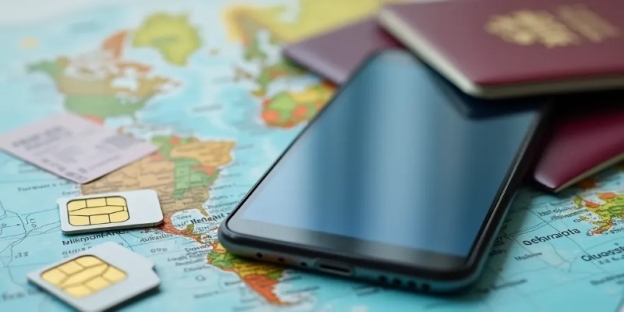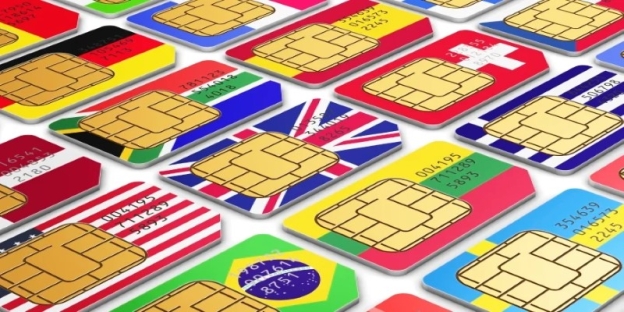Career
理想の働き方は見つかる?看護師求人の選び方と成功のポイント
1755766746000
Are you planning an international trip and wondering which option is more cost-effective: using a travel SIM or sticking with your current roaming plan? Choosing the right choice can save you from frustrating bills and poor coverage. Let's examine the real difference between travel SIMs and roaming.
Are you planning an international trip and wondering which option is more cost-effective: using a travel SIM or sticking with your current roaming plan? Choosing the right choice can save you from frustrating bills and poor coverage. Let's examine the real difference between travel SIMs and roaming.
When travelling abroad, most people choose between two popular options to stay connected: buying a travel SIM card or using the roaming plan provided by their local network. But these two services work in very different ways.

Roaming allows your existing SIM to connect to foreign networks through pre-arranged deals between your provider and telecom companies abroad. It's convenient, but often expensive, especially for data. Travellers who don't plan can face shocking phone bills.
On the other hand, a cheap international SIM—also known as a travel SIM or global SIM card—is a physical or digital SIM (eSIM) purchased before or during your trip. It allows you to use mobile services in foreign countries without relying on your home network.
Many of these travel SIMs operate on local or regional networks, offering lower prices and flexible packages tailored to travellers.
Not always, but most of the time, yes.
Roaming charges depend heavily on your home provider. Some offer reasonably priced daily roaming passes in selected countries. However, if you're visiting several countries or heading to places not covered by your roaming deal, things can get expensive quickly.
With data roaming alternatives like travel SIMs, you can often pay a flat rate for data across multiple countries. Many global SIM providers offer regional or worldwide plans, which are great for multi-country itineraries.
Example:
A traveller from the U.S. visiting France for 10 days might pay $10 per day for a roaming pass with their U.S. carrier. That's $100 for 10 days. A global SIM card from a third-party provider might offer 5GB of data for $25 for the same period, less than a third of the cost.
That depends on the provider and the network partnerships they have in each country. Some of the top budget international SIM brands partner with multiple carriers to ensure robust coverage and high speeds.
Many global SIM cards let you choose your region before the trip—Asia, Europe, Oceania, etc.—and connect to the best local networks once you land. This flexibility gives them a clear edge over roaming, where you’re locked into a single network your carrier partnered with.
Do some research before selecting a provider. Read reviews, check which countries are supported, and ensure the SIM includes the services you need—especially data.
If your itinerary includes several countries, choosing between a travel SIM and roaming becomes a much easier decision. Travel SIMs win for two big reasons: cost and flexibility.
Roaming fees often increase or vary by country, and your provider might not even support roaming in all your destinations. That means you’ll either lose connectivity or end up juggling local SIMs.
A global SIM card, however, offers broader coverage. You can purchase a plan that works seamlessly across borders, without needing to swap SIMs or worry about unexpected charges. That's especially helpful for backpackers, digital nomads, or business travellers with tight schedules.
Not all travel SIMs are created equal. When comparing options, focus on:
A cheap international SIM should strike a good balance between price, reliability, and customer service.
Yes, as long as you buy from a reputable provider. The most well-known travel SIM brands are legitimate, secure, and used by thousands of international travellers.
Still, be cautious when buying from lesser-known vendors or marketplaces. Always check if the company has clear policies, reviews, and reliable customer support.
Keep in mind that using public Wi-Fi can often pose more risks than using mobile data. In that sense, having your own travel SIM with data access can be safer than relying on hotel or airport Wi-Fi.
If you're travelling long-term or working remotely, data roaming alternatives are not just useful—they're necessary.

Roaming charges can add up fast, especially for high-data users like remote workers. A cheap international SIM with recurring or flexible plans will be more sustainable in the long run. Some providers offer monthly subscriptions with larger data caps or unlimited packages in certain zones.
There's also the flexibility of switching providers or SIMs depending on which country you'll be staying in for longer. Many digital nomads carry more than one travel SIM or use multi-profile eSIMs to toggle between networks depending on cost and coverage.
Roaming isn't all bad. It still has its place—mainly for short trips, business travellers who need to keep the same number, or people with generous roaming plans included in their existing mobile contracts.
If your carrier offers a low-cost daily roaming pass in your destination and you don't plan to use much data, it might be more convenient to stick with your current plan.
However, for those travelling to countries outside your plan's coverage or staying longer than a few days, using data roaming alternatives like travel SIMs will almost always save money and give you more control.
It depends on your needs, but if saving money, avoiding surprise charges, and staying connected across borders matter to you, a global SIM card is the smarter option.
Roaming works for simplicity and very short trips, mainly if your provider includes it in your plan. However, most travellers will find better value and flexibility with a budget international SIM.
Whether you're going on vacation, working abroad, or backpacking through multiple countries, travel SIMs offer peace of mind—and better prices. Be sure to compare coverage, pricing, and setup options before making a decision.
Finance
1758253497000
tech
1756805573000
car
1757926296000
Finance
1758089478000



